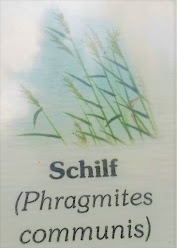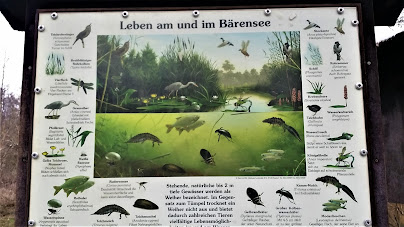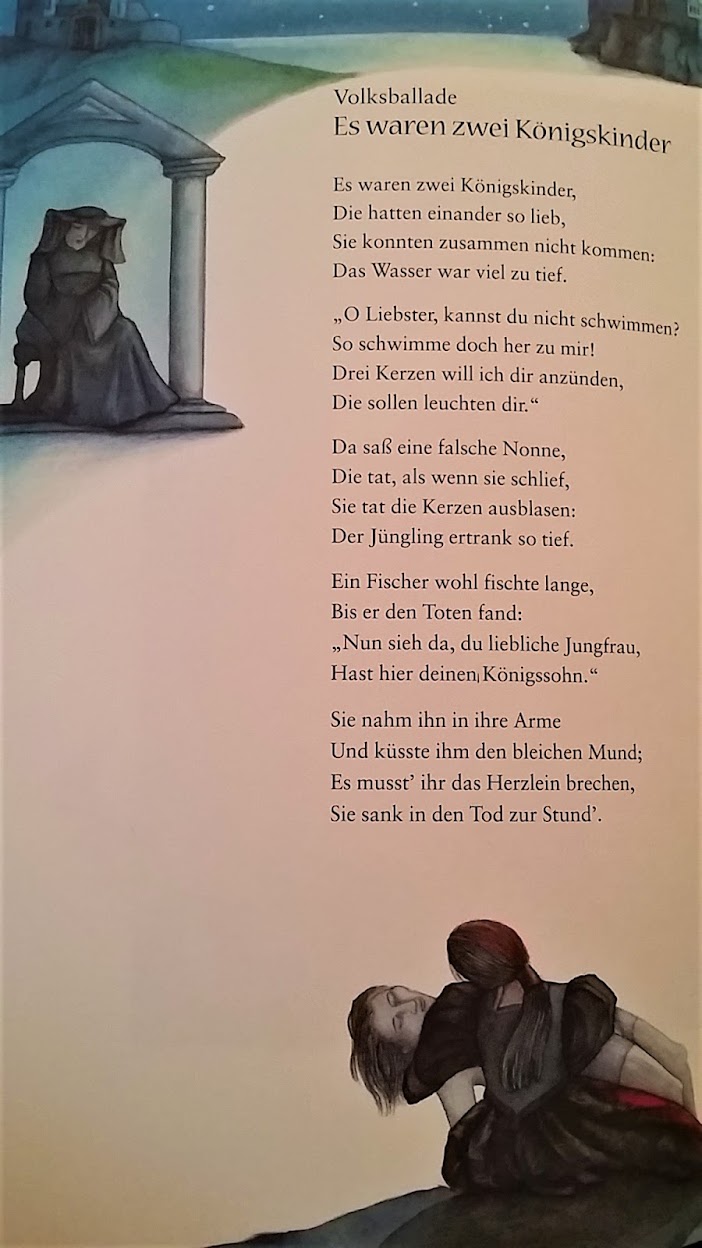On a walking tour, I stood before this information board, and attracted by the word “Schilf“.


This poem has three parts, they are the three moments of morning dew on the reed in autumn.
I. The morning dew on the reed is frosty.
II. The morning dew has not yet dried, but no more frosty.
III. The morning dew has not yet evaporated, but start disappearing.
I.
My beloved is across the water. So close that I can see him/ her clearly, yet so far because the other side of the water is unreachable. Why unreachable? The water is the dividing line. Let us see what the water has done to the poet Lenau.
Standing near the water, Lenau thought that he had to bury his love. The bright moonlight that fall on the reeds, white and green overlapping just like the funeral flower wreath. We only can guess why he buried his love as a deer suddenly appear, took his glance away from the reed. May be he thought that the love he had might prevent him from achieving his ambition (deer). This might be his worry, but the worry was not necessarily the truth.
However, his attention come back to the water as the water moved caused by may be ducks? or swans? As soon as he lowered his gaze, he saw her in the water, and he felt bitter and sweet. So close, just a gaze in the water, she would be there. Yet so far, it was just an imaginary she.
Auf dem Teich, dem Regungslosen,
Weilt des Mondes holder Glanz,
Flechtend seine bleichen Rosen
In des Schlilfes grünen Kranz.
Hirsche wandeln dort am Hügel,
Blicken durch die Nacht empor;
Manchmal regt sich das Geflügel
Träumerisch im tiefen Rohr.
Weinend muß mein Blick sich senken;
Durch die tiefste Seele geht
Mir ein süßes Dein gedenken,
Wie ein stilles Nachtgebet.
Auf dem Teich, dem regungslosen
Nikolaus Lenau -Die Schilflieder
II.
My beloved is across the water, perhaps there is a way to cross the water? A boat?
The water is wide, I cannot get over
Neither have I wings to fly
Give me a boat that can carry two
And both shall row, my love and I
A ship there is and she sails the sea
She’s loaded deep as deep can be
But not so deep as the love I’m in
I know not if I sink or swim
The Water is Wide
Scottish Folksong
III.
My beloved is across the water. The water is wide and the water is deep, I know not if I sink or swim? In a German folk ballad – There were two royal children, he swam and sank. Out of sadness, she sank too.

Poems that mentioned in this post:
- Chinese Folk Poem – 《诗经 . 秦風 . 蒹葭》(circa B.C. 1100 – B.C. 600)
- Nikolaus Lenau – “Die Schilflieder – Auf dem Teich, dem regungslosen”
- Scottish Folk Song – The Water is Wide
- German Folk Ballad – Es waren zwei Königskinder